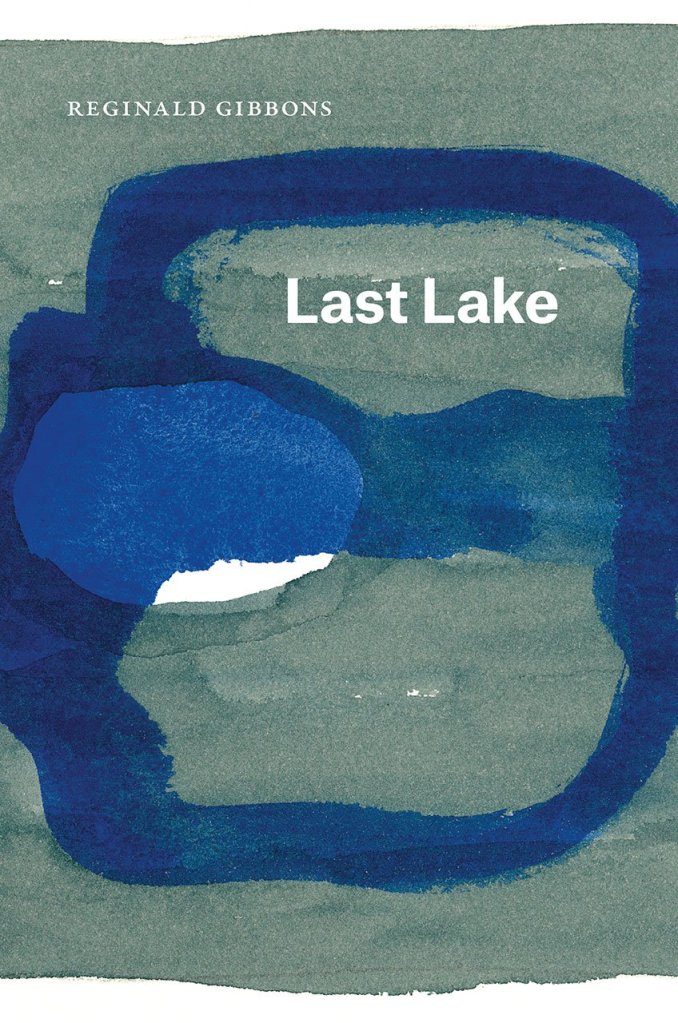
Our National Poetry Month celebration has reached a fever pitch, but before we make our last call and flip on the bright lights, we want to introduce one more special guest to our poetry party. As you well know, Evanston is home to some seriously talented poets, and it is our pleasure to highlight their work right here on Off the Shelf. Next up is Reginald Gibbons. The Director of the Graduate Creative Writing Program in NU’s School of Professional Studies, Gibbons’ tenth book of poems, Last Lake, will be published in October by University of Chicago Press, and his book about poetry, How Poems Think, came out last fall. He has published a novel, Sweetbitter, has edited a collection of poets’ essays (The Poet’s Work) and other books, and has translated a volume of Selected Poems: Odes and Fragments of Sophocles, poems by Spanish and Mexican poets, and also two ancient Greek tragedies (Bakkhai and Antigone); in 2017 he will publish a book of very short fiction. We recently spoke with Gibbons via email about his poetic origins, his writing process, and the poetry that inspires him.
Evanston Public Library: Can you tell us a little about your background as a poet? What started you writing poetry? What did you write about when you began, and what do you write about now?
Reginald Gibbons: I was born and grew up near Houston, and I always read a lot, and started writing poetry in high school, so my imagination and interests and my language were influenced by my formation in a half-Southern, half-western region. In my college years I got the idea of writing seriously, steadily, over the long term. Until I was a senior in college, I didn’t manage to write a good poem–and then it was just one or two. By then I had been on the East Coast for several years, in a world very different from what I had known before. Again, a tremendous expansion of my ideas and goals. In college I majored in Spanish. After college, I went to California to enter graduate school and I experienced another new world of very different climate and ecology and literary culture. When I was young, I wrote about everyday things, and the big themes–love, death, travel, intense moments of being–and I was translating poems from Spanish. Later in my twenties I kept finding more new artistic models and new ideas about poetry itself. And I’ve remained a student of poetry all my life. Not until I published my first book of poems when I was 31 did I feel I might have gotten my sea legs and might be on a long voyage. Over time, I have gradually moved somewhat further from first-person poems and have written much more about life and place and experience beyond my own.

EPL: Can you give us a window into your writing process?
RG: Because I have always worked at other things for my living, principally editing and teaching, and helped raise two children, I had to learn to write even in short half-hours or hours stolen from other responsibilities. Only when I was writing a novel (Sweetbitter) did I manage to establish a routine of writing for an hour or several hours in the morning on most weekdays. I have been lucky that my paid work hours, as opposed to my writing work hours, were pretty flexible, and as long as I was willing to work all the time, I could get most things done, including my own books.
EPL: What poets have inspired you? What are you reading right now?
RG: Right now I’m mostly reading–if I can call it that–20th and 21st century Russian poets, even though I don’t know Russian. I’ve been working for some time with Russian poet Ilya Kutik (my colleague at Northwestern) on translating from Russian. Over the years, my inspirations have changed again and again, as I have looked for new artistic models for new things that I myself wanted to do in a poem. I try to hold in mind as long and as broad a view of poetry as I can, having studied and translated some ancient Greek poetry, having translated poetry from Spanish and other Romance languages, and having worked for many years on the Russian translations I mentioned, and so on.
The Young Woman by Reginald Gibbons
The young woman did office work,
. wore short skirts and heels, made herself
up, in very still morning when
. I was a hybrid of boy and
some creature without kind, she would
. step out of the rented place, walk
through the coarse dew-damp grass across
. our back yard, come out the clanking
gate in our chain-link fence, tiptoe
. past the outside wall of the bed-
room my brother and I shared, get
. with flashing leg into her trashed
car, she and her husband, unlike
. most, even poor, Texans, only
owned one Chevy between them, parked
. it to the side of our concrete
drive on crushed-shell gravel Daddy
. had had hauled in by groaning dump-
truck and poured onto the living
. grass, and she–young woman older
than I–would back, turn around, inch
. crunching out past our obstructing
bushes, bend forward to look, hit
. the gas, and I would let go of
the window blinds I had risen
. to push carefully apart.
